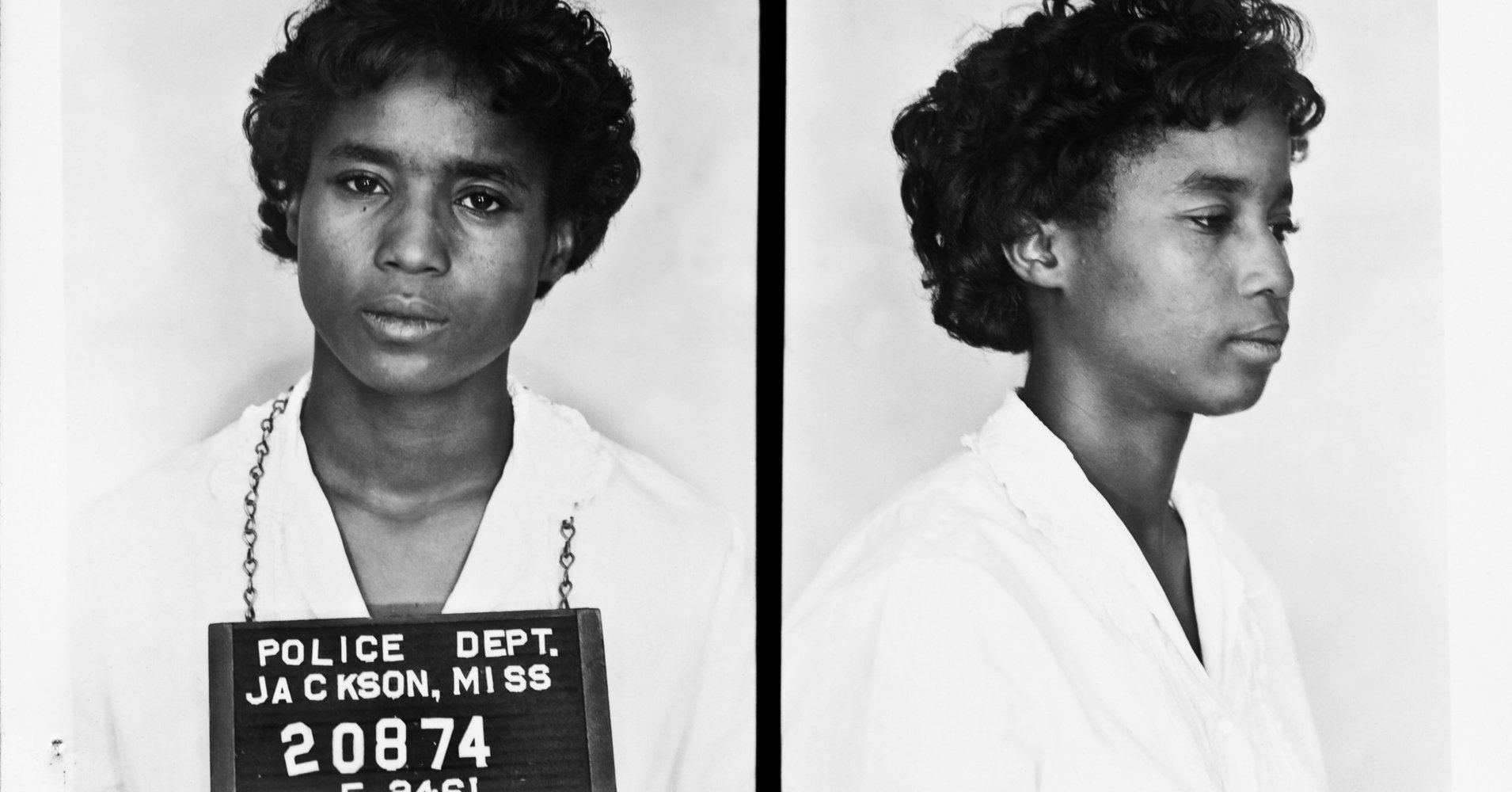[ad_1]
The mugshots faded into the backdrop of black history until Eric Etheridge went digging.
It was 2003. The journalist and photographer was looking to center a photography project around historical images. That’s when he remembered that a decadeslong legal battle had forced the Mississippi State Sovereignty Commission — which was created in 1956 to fight desegregation — to open its archives. After a few phone calls, he found Sarah Morrow at the Mississippi Department of Archives & History. She knew the files backward and forward.
“She told me what was available and that most of them were just mugshots, as if that would be disappointing,” he recalled with a chuckle.
At first, the files didn’t make much sense. Soon, Etheridge realized that he was looking at complete record of everyone who was arrested on May 24, 1961, the day the Freedom Riders’ bus arrived in Jackson, Mississippi. This was a piece of history, preserved thanks to a racist commission. By occupying segregated spaces throughout the South, the Riders were pushing the federal government to enforce a 1960 Supreme Court ruling declaring the segregation of interstate transport facilities unconstitutional. In Jackson, black riders who refused to stay out of white restrooms and waiting areas were arrested along with their white peers who used the “colored” facilities. A number of them were sent to Parchman Farm, another name for the Mississippi State Penitentiary.
Over 300 riders were charged with “breach of the peace” and had their mugshots taken. A piece of paper containing the rider’s full name, birthdate, place of birth, address at the time of arrest and other information typically found in an arrest record was stapled to the back of each mugshot.
“It was a full documentation of everybody who participated. And then as photographs [the mugshots] were also compelling. I think some of them are really good portraits. Even though that’s not kind of what you expect out of that situation,” said Etheridge.
The uncovered mugshots and subsequent interviews with those arrested in Jackson form the heart of Etheridge’s 2008 book Breach of Peace: Portraits of the 1961 Mississippi Freedom Riders, an extended version of which is available now. The latest edition contains all 329 mugshots and contemporary portraits of 99 riders. (The 2008 edition had 84 portraits.)
But the most fascinating piece of the book is a series of extended interviews with riders. Many of the sit-downs, which were present in the 2008 edition, detail the riders’ lives back home, what compelled them to join the cause and the police violence they experienced during their incarceration following the incidents at the bus depot.
“The Freedom Riders are very ordinary people,” said Etheridge. “They were high school kids, and college kids, and a few older folks from all over the country who put down what they were doing at the time to come to Mississippi and engage.”
Below are extended interviews Etheridge conducted with three of the riders.
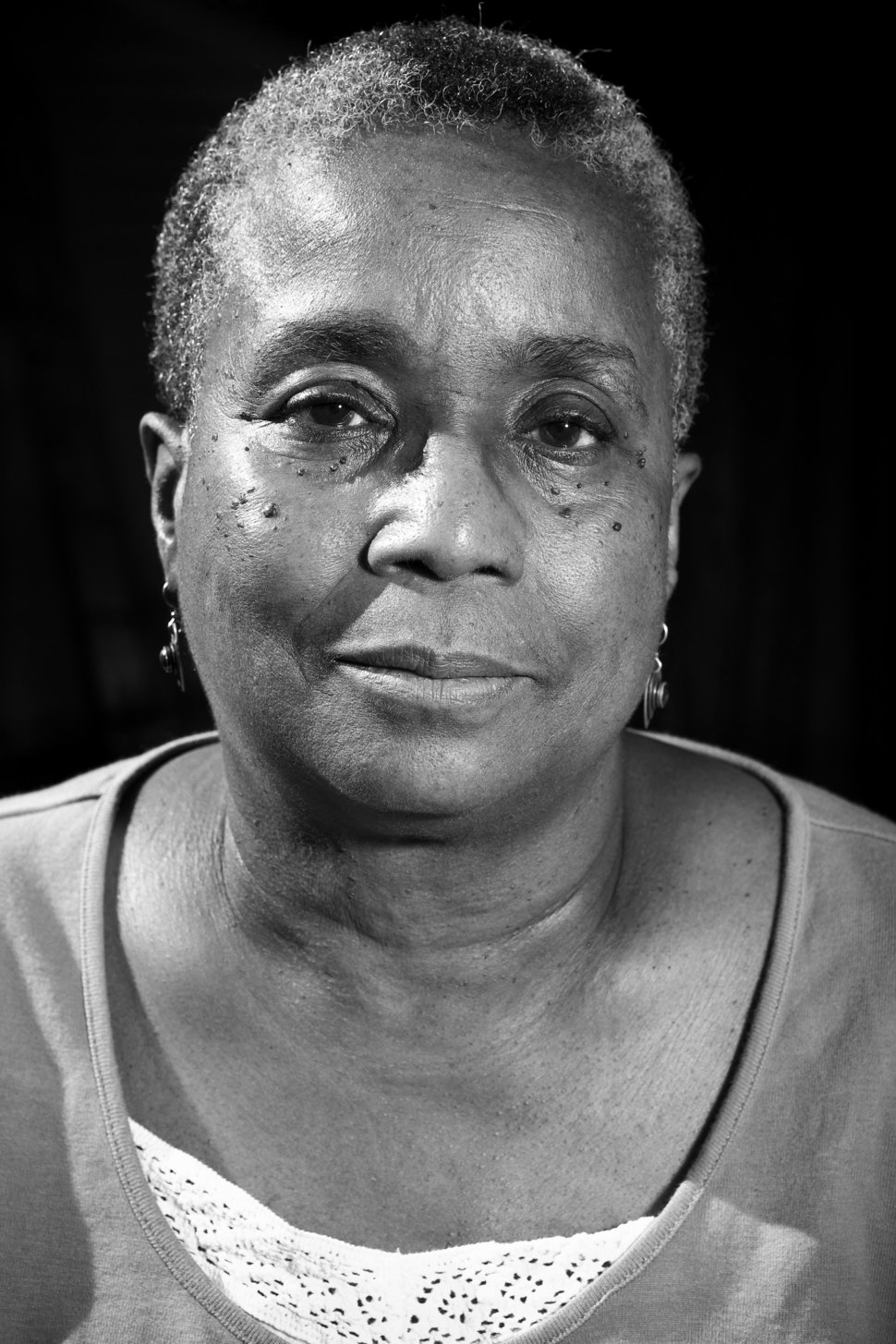
Photographed by Eric Etheridge
Jean Thompson
Photographed June 23, 2007, in Amherst, Massachusetts.
I think we were in the city jail for a day, and then we went to the county jail for a day, and then we were transferred to the county penal farm. The city jail wasn’t the best thing. It had bugs, and I was afraid of bugs. There were praying mantises, which I was afraid of, and spiders. But you had to show that you were strong, I had learned, so I didn’t show any fear.
And then some people bailed out, and we started thinning out. And we went to the county jail, which was plush compared to the city jail. Fewer bugs, and county had bunks, I think.
By the time we got to the penal farm, I was the only female left. And when we got there, we were interrogated. We were told that these are the rules and the regulations. And one of the rules was that you always have to say “yes, sir” and “no, sir.”
My parents, especially my mother, taught us you don’t have to say “yes, sir” and “no, sir” to white people. You give your respect but you can always say “no” and go on. And I was determined that I was not gonna say “no, sir” or “yes, sir” — the other part of that was “yes’m” and “no’sah.” We didn’t say that in my house.
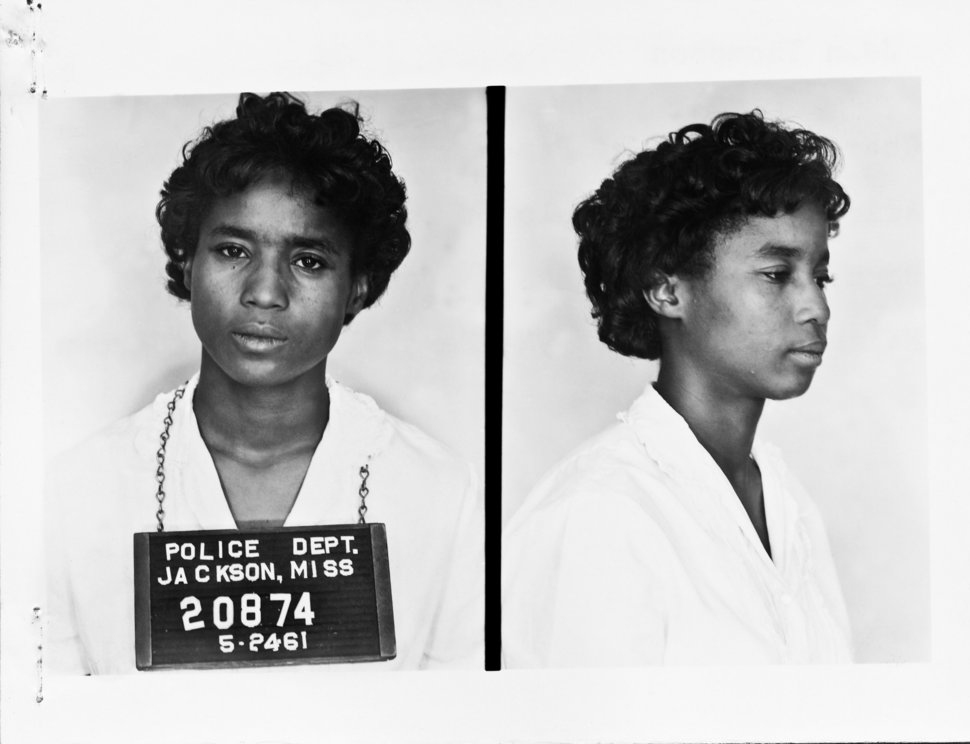
Mississippi Department of Archives and History
The superintendent started asking me questions. I would say yes or no and avoid the “sir” by immediately continuing with my answer — no, and blah, blah, blah. We were in a little room just the two of us, and he was six feet tall, and he must have weighed two hundred and some pounds. I was slender at that time, and I weighed ninety pounds.
We’re sitting at a table. And he came up with a question, and he must have bumped the table or something. I turned around, and I wasn’t quick enough. So I just said no, and sort of paused. And he slapped me so hard that I saw stars. I must have been unconscious for two or three seconds.
It went over briefly, and in a couple of seconds I was able to readjust. But I know I was unconscious for a while ’cause I remember blackness. But after that one slap I decided I’m not gonna get hit again ’cause I may not last. But he wasn’t able to catch me anymore and he got tired, so he just said let her go, bring on someone else.
Then someone bailed out and reported that I and others had been hit. They brought the FBI in to investigate. They interviewed me. They interviewed the superintendent, and all the other people. And they concluded that nothing had happened. No one was beaten.
Well, I must be hallucinating now ’cause I know I felt that man’s hand on my face. I know I heard other people being whacked. But nothing happened. That said a lot to me about what actually happens in this country. It was very eye-opening.
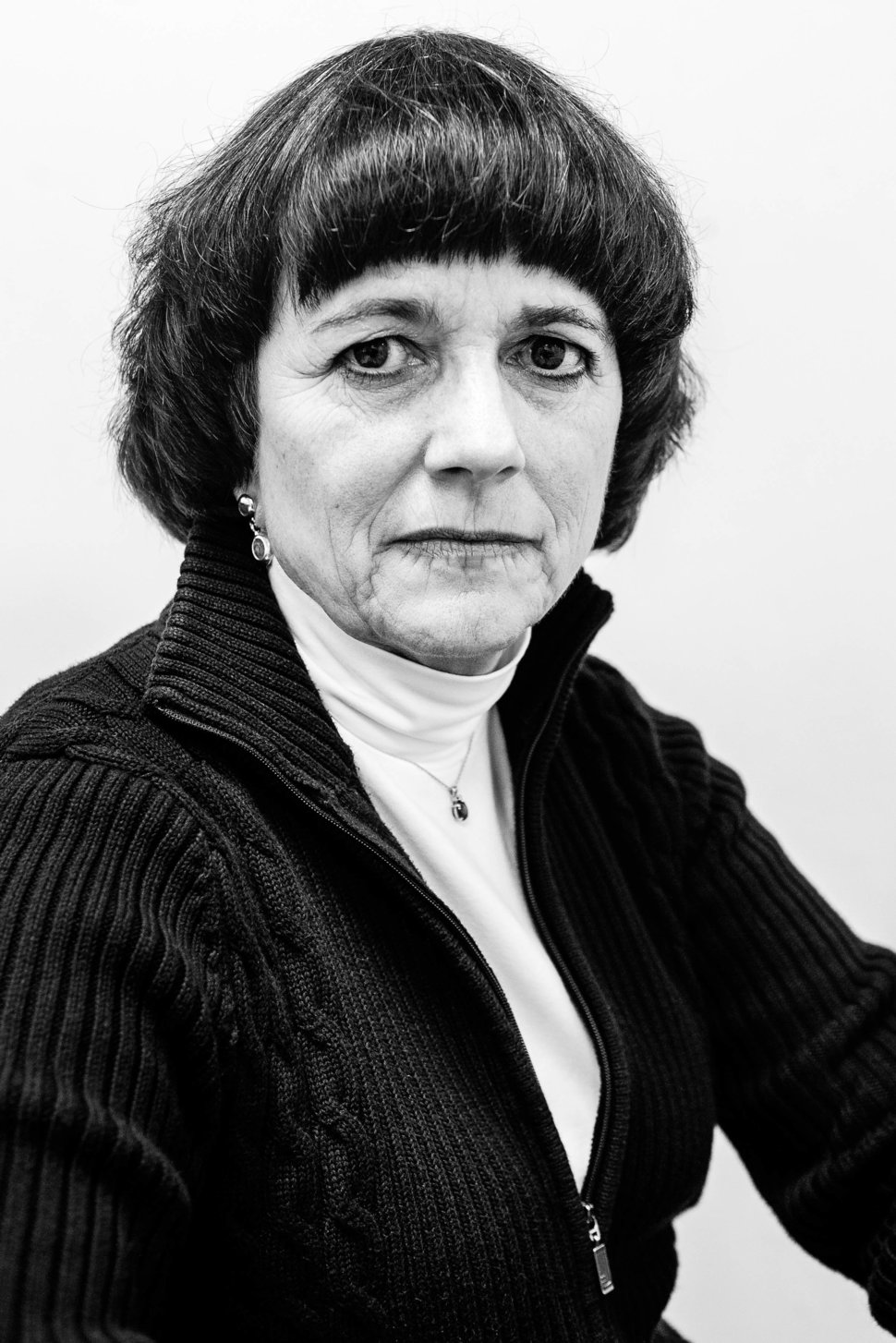
Photographed by Eric Etheridge
Mimi Real
Photographed Feb. 16, 2007, in San Anselmo, California.
At Parchman we had the day very organized because we discovered very early on that if it wasn’t, we’d all be talking, and the noise level — it was a cement block building and the babel would be just unbelievable.
One of the black women was kind of the master of the day, and she would announce what period it was. We had quiet periods and freetalking periods, and then we would have periods where there would be something organized going on.
Somebody would lead exercising — we’d each be doing it in our cells. The cells were very small, but we’d figured out if you’d walked back and forth 1,000 times or something you’d walked a mile.
Then in the evening we had this radio program. It was a variety show. I think the same person was the announcer every night. And each cell had to have something prepared. It could be anything, a Bible reading or a sermon or a talk about something, or you could sing a song, tell a joke, or do a commercial.
One of the things we were issued was a bar of soap, which, of course, was absolutely dreadful. It was like lye. So we’d have these commercials about, if you want radiant skin, use Parchman’s Soap. We’d have commercials about the skirts, and about the food.
And so we’d go all the way down the cells, and each cell would do its little act, and then the announcer would wrap up, “Well, that’s it for Parchman Hour.” It was the highlight of our day.
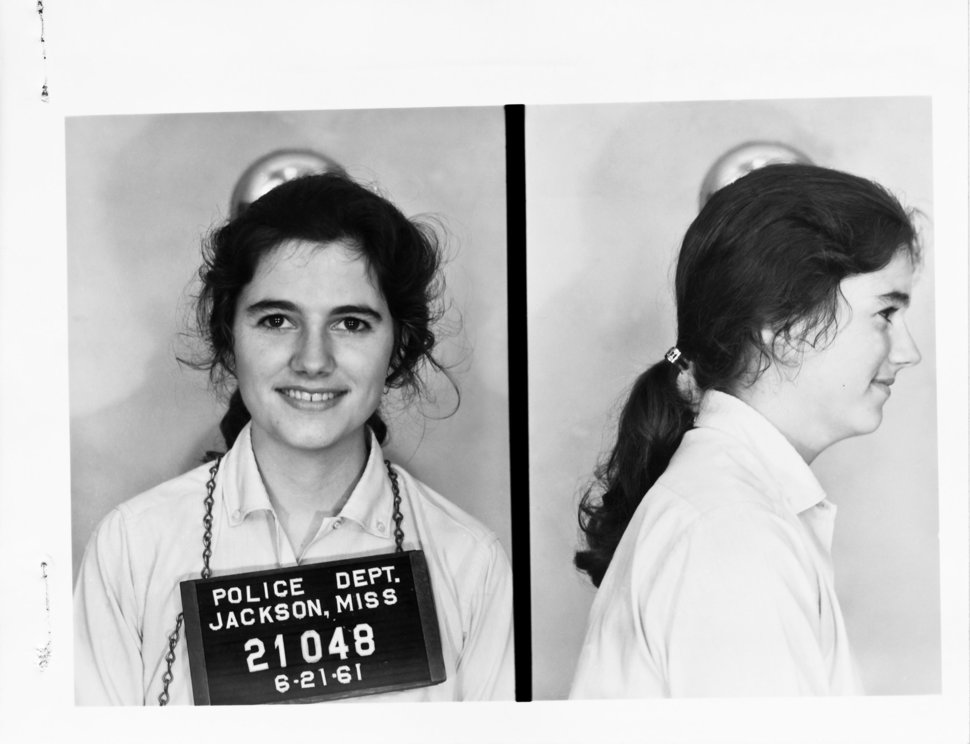
Mississippi Department of Archives and History
I was in a cell all by myself in the Jackson city jail, and then I was called into this interrogation room. I honestly did not think that there were people like that sheriff’s deputy, or whoever it was who questioned me. He was straight out of central casting, with the accent to boot — literally a redneck, belly hanging over his belt, sitting back in his chair, just totally contemptuous of me.
He asked all the routine questions first. We knew that we were required to give, I think, our name, birth date, Social Security number, and that was it. Anything else, we could refuse to answer, in a very nice way, not in a belligerent way.
Then he started asking me about my personal life. Did I go out with black boys? I’m trying to remember if he asked if I slept with black boys. Then he asked me my religion. CORE had told us that this was a question that was optional but suggested we answer it, simply to show that we weren’t godless, atheistic Communists.
You know how you have these mental conversations that you think go on for minutes, but it was obviously only a split second. I thought to myself, “I’m Jewish, but if I say I’m Jewish, I know that, in addition to being racists down here, they’re also all a bunch of anti-Semites, so I might get myself into trouble there. But if I say I don’t have a religion, or I’m an atheist, or an agnostic, or something, that might be even worse because they’re all God-fearing Christians down here. I don’t want to be classified as an atheistic, Commie-radical pinko. I could say I was Christian, but that would be lying, and I didn’t want to do that.”
I finally decided to go with the truth. I figured I was cooked no matter what I said. So I said I was Jewish, at which point he looked at me with this sneer that only someone in that position could muster, and said, “Oh, so you’re a Jewess.”
I don’t think I had ever heard that term used in conversation. I had certainly seen it. I think Shakespeare, for instance, uses it. It’s an archaic term. I had known it in that context, but I had no idea what he even meant. So I don’t even think I answered. I was so dumbfounded that I just sat there and looked at him.
Then he said with an equal sneer, “So, you think you’re the chosen people. You think you’re better than everybody else.”
Again, I was totally taken aback. I was so dumbfounded I just didn’t say anything. Mercifully, he went on to the next ridiculous question. I think maybe he wanted to know did I go to school with black boys and stuff like that. But anyway, at some point that was all. He finished his interrogation.
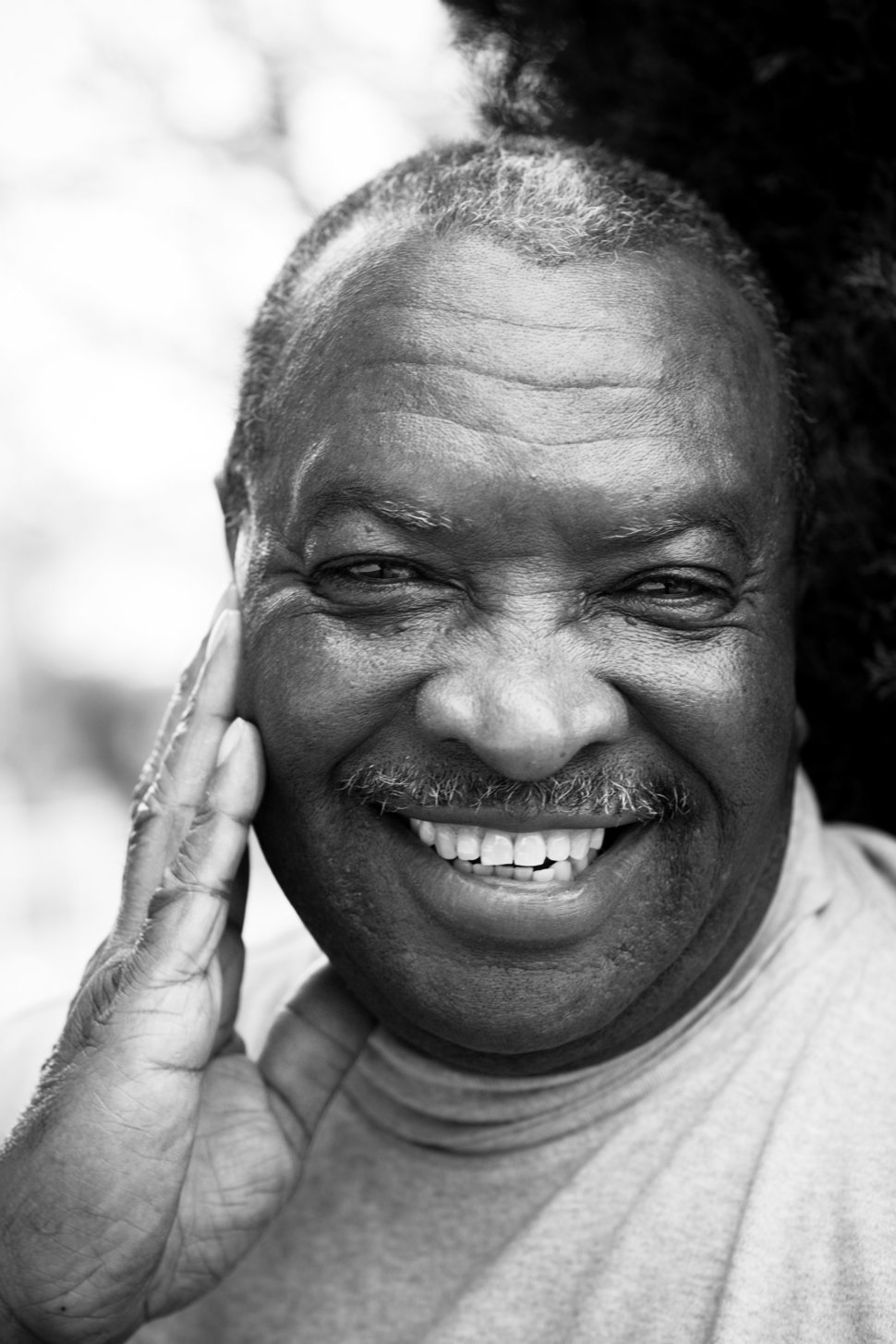
Photographed by Eric Etheridge
Larry Bell
Photographed Feb. 9, 2007 in Los Angeles. He died on May 18, 2013.
One of the guards at Parchman was named Sergeant Storey; he was an older man. Deputy Sheriff Tyson, he had that drooling, bigoted look. He looked at you from under his brow and snarled. Sergeant Storey was an older, gray-haired man, but Deputy Sheriff Tyson was the one who ran the whole situation. Everybody jumped when he spoke. He had his cigar and he had a flat top; he was the Class-A Marine. If you look at one of these movies where the old sheriff got his cigar hanging out of his mouth and has his attitude — he drooled with kind of like a picture of dislike and hatred.
Once they took our clothes away as punishment. We protested by singing “We Shall Overcome” and the old Freedom Rider songs. That got them to a point they were going to teach us, so they opened up the windows and let the mosquitoes in. They turned the air conditioning off during the day and so we burned up during the day, and at night when it got cool, they turned the air conditioning on when we were trying to sleep, and we pretty much froze.
About once or twice a week, we were allowed to take a shower. And we all had to shave with one razor — a single-edge razor blade. Now, that was torture in itself! [Laughs.] I don’t appreciate the Gillette Company too much right now for that. I think we had two minutes to get our showers done, and we got back to our cells.
We had three meals per day, if you want to call them meals. In the morning, they would bring us some cold grits and something that was supposed to be a biscuit. Sometimes we would get a piece of what was supposed to be bacon, but it was fatback, really. It was real salty. The grits were — you could pick it up and break it and do whatever you want. Sometimes they’d bring cold oatmeal the same way. It was really curdled up, but hey, we ate it. Didn’t have anything else to eat. Didn’t have any kind of facilities in our cells where we could prepare anything. We didn’t get very much vegetables, so we lost a lot of weight. I lost a lot of weight, and being just kept inside, we were not allowed to go out and didn’t get any exposure to the sun, so I lost all of the coloration. It was something. It was an experience.
We were protesting one night, and the next thing, Sergeant Storey, he calls Deputy Tyson out, and Deputy Tyson opened up the cells and put all of us — there was a whole side, I guess maybe about 35 — put us not in solitary confinement but in the box. It was one room that was smaller than 12-by-12. They stuck all of us in there.
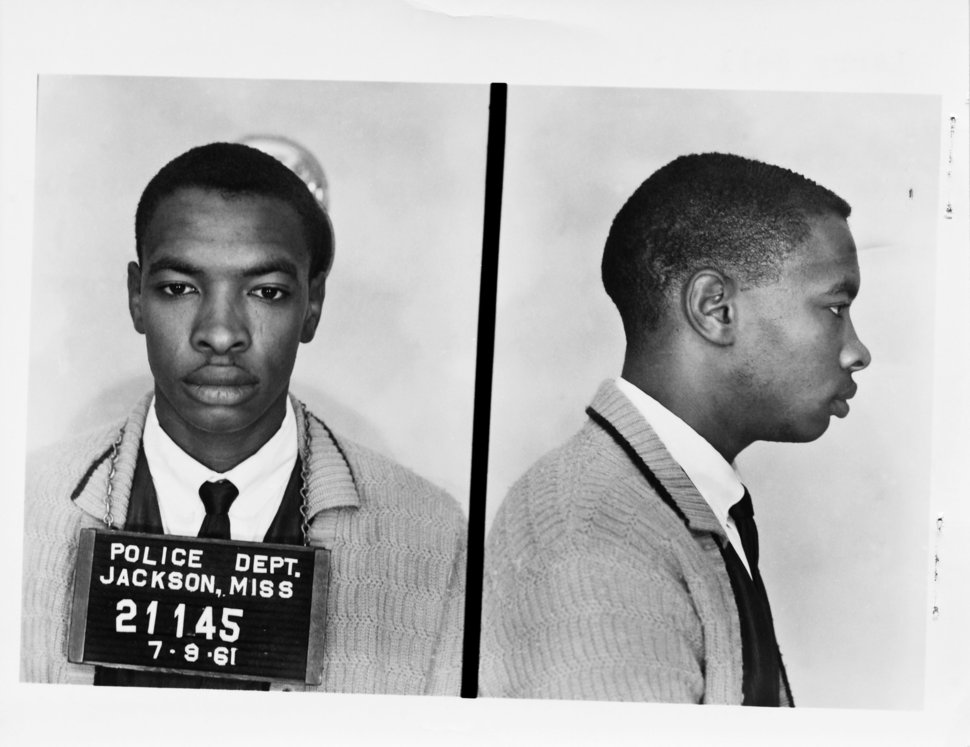
Mississippi Department of Archives and History
This is when I think we came closest to someone’s demise. When they put us in this lock-up, it was airtight as it was, at least they believed it was airtight. There was no windows; it was just a dark room. So they put all of us in that room, and all we could do is stand up, stand up straight. And it got so hot in there that water was dripping from the ceiling down on us, enough to get us wet.
That’s why we were put into the lock-up. They was gonna make us concede to their power, and we refused to concede to their power. Storey came up; he opened up the [hole in the door] and said, “Before you get out of here, every damn one of you niggas is gonna tell me ‘yes, sir.’ ”
We said, “Well, why should we tell you ‘yes, sir’? We have no disrespect or respect for you. You’re a man just like we are.”
We were breathing ’cause we thought, “Well, hey, everything is fine. We can stand up in here. As long as we’re packed in here like this like sardines, that’s no problem.” And then we heard, “DUUUUUUuuuuu.” The air conditioning was going off. Some individuals started getting concerned, and I noticed that there was a crack at the bottom of the door, because you could see a slit of light there. So I worked my way down and got close to the floor, so here I am, I’m breathing good air! After a while, my comrades began to panic and I thought, “Let me tell these guys the secret.” So we took turns up and down to get what air we could get.
And when Deputy Tyson came back in and they opened up the little hole on the door, and Sergeant Storey, he looked in and we were all dripping wet, he said, “All you niggas shined your ass this time, didn’t you?
“The condition is every one of you niggers — when I ask you a question,” he says, “I want everybody to say, ‘yes, sir,’ to respect my authority.
“Or else your ass is gonna stay in there and you’re gonna die.”
So some of us acknowledged “yes, sir,” and some of us didn’t. But they opened the door and let us out, because I don’t know if they wanted to have the scandal [of having a Freedom Rider die].
We had an opportunity to share a lot about the movement in Parchman. We had debates, pro and con about race relationships, about segregation. My brother-in-law [Edmond Dalbert] was the pro and I was the con. He put up the defense for the whites, and I debated him from the standpoint of the blacks. We went over a myriad of topics. He wanted to know, “Well, I’m white. Why should I give you what I have and thereby compromise myself?”
It wasn’t just a casual conversation; it was to bring some kind of a resolve or strong thinking to the issues. After he and I got through, we asked “OK, who do you think was strongest?” and everybody would respond by clapping.
Believe it or not, the officials of the prison would come and listen to us debate. Tyson and Storey, they’d be there listening to us debating. Did it have any effect on them? We didn’t see any change, they didn’t express any change. But the fact that it was being listened to and that applause was given — and sure, it was the cellmates and everything — but where they were positioned, they listened to the debate and didn’t interrupt.
These interviews were excerpted from Breach of Peace: Portraits of the 1961 Mississippi Freedom Riders.
[ad_2]
Source link

